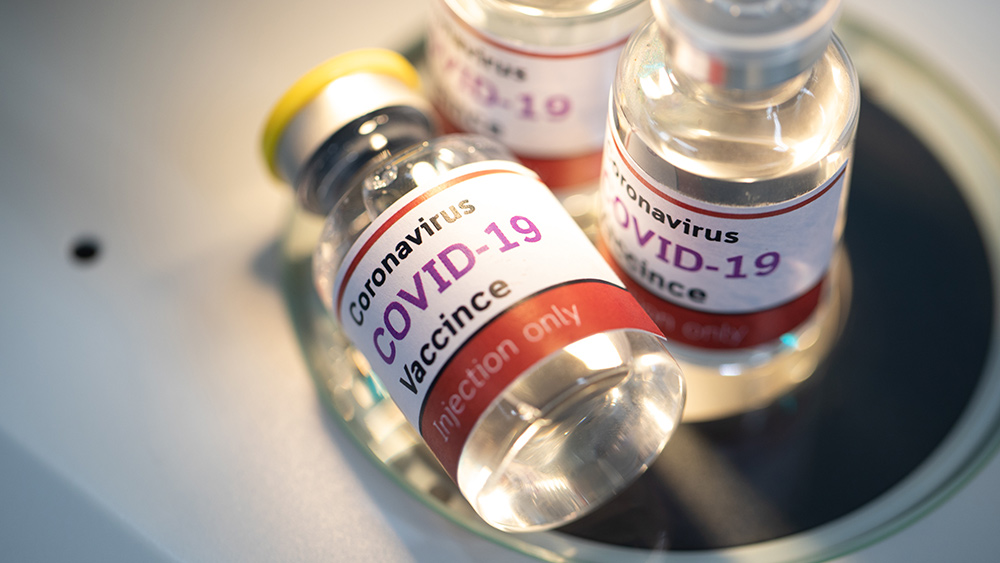Green Tea and Vitamin B3: A powerful combo to reverse brain aging
08/06/2025 / By Lance D Johnson

The University of California, Irvine study presents a remarkable breakthrough in neurodegeneration research, demonstrating how the synergistic effects of green tea’s EGCG and vitamin B3 (nicotinamide) can rapidly restore aging brain cells. The study’s findings suggest that this combination doesn’t merely slow cognitive decline — it actively reverses cellular aging markers in less than 24 hours. Alzheimer’s and Parkinson’s diseases are characterized by toxic protein accumulation, particularly amyloid-beta plaques and tau tangles, which impair neuron function. The UC Irvine researchers found that EGCG enhances cellular detoxification pathways, while vitamin B3 replenishes NAD+ levels, a critical molecule for mitochondrial energy production. Together, they revitalized aging neurons, improving waste clearance and reducing oxidative stress. Though confined to lab-grown mouse cells, these results provide a strong foundation for future human trials.
Key Points:
- Rapid rejuvenation: Aged brain cells from mice regained youthful energy levels within 16 hours when treated with EGCG (green tea extract) and vitamin B3 (nicotinamide).
- Toxic protein clearance: The combo reduced amyloid-beta plaques (linked to Alzheimer’s) and enhanced neuron survival by 22%.
- Restored cellular cleanup: The treatment normalized lysosomal function, ensuring neurons efficiently cleared waste deposits that accumulate with age.
- Caveats: While promising, findings are based on lab-grown mouse cells—human trials are needed to confirm efficacy.
The science behind the brain-restoring duo
Neurons rely on GTP (guanosine triphosphate), an energy molecule crucial for cellular maintenance. As aging depletes GTP, waste removal slows, and toxic proteins accumulate. Vitamin B3, a precursor to NAD+, supports mitochondrial efficiency, ensuring neurons maintain energy for self-repair. Meanwhile, EGCG activates Nrf2, a transcription factor that boosts antioxidant defenses and regulates inflammation.
Beyond immediate neuroprotection, EGCG may enhance neuroplasticity — the brain’s ability to adapt and rewire — while B vitamins like niacin (B3) aid neurotransmitter synthesis. Studies also link B vitamin deficiencies to cognitive impairments, making supplementation a potential preventive measure. Combined, these compounds offer a dual-action defense against neurodegeneration.
The UC Irvine team discovered that:
- Vitamin B3 (nicotinamide) boosts NAD+, a coenzyme critical for mitochondrial function and GTP synthesis, effectively restoring cellular energy.
- EGCG (green tea’s key antioxidant) activates Nrf2, a “master switch” that triggers antioxidant defenses and repairs oxidative stress.
- Together, they supercharged GTP levels, enabling neurons to resume waste-clearing duties—essentially rebooting aged cells back to youthful functionality.
“Young neurons are like efficient waste management systems,” explains lead researcher Gregory Brewer. “This combination reboots that system in aging cells.”
Foods rich in vitamin B3 and EGCG
Vitamin B3 (niacin) deficiency is rare but can impair brain function. Alongside animal-based sources like salmon and poultry, plant-based options such as peanuts, mushrooms, and fortified grains provide ample niacin. EGCG, concentrated in Japanese matcha, is best absorbed when paired with vitamin C (e.g., lemon in green tea) to enhance bioavailability.
Optimal preparation matters: Overbrewing green tea degrades EGCG, so steeping at 80-85 C yields maximum benefits. Fermented teas like black tea lose EGCG during processing, making unoxidized green and white teas superior choices.
Top sources of Vitamin B3 (niacin):
- Beef liver (14.9 mg per 3 oz)
- Chicken breast (10.3 mg per 3 oz)
- Salmon (8.6 mg per 3 oz)
- Peanuts (4.2 mg per oz)
- Brown rice (5.2 mg per cup)
- Whole wheat bread (1.4 mg per slice)
- Mushrooms (2.5 mg per cup)
- Avocado (1.7 mg each)
Best Sources of EGCG:
- Matcha green tea (highest concentration—137 mg per gram)
- Brewed green tea (70–89 mg per 100 mL)
- White tea (42 mg per 100 mL)
- Apples (with skin) (5.5 mg per 100 g)
While awaiting clinical trials, incorporating EGCG and B3 into daily habits offers a proactive approach to brain health. Pairing matcha with niacin-rich meals may amplify their neuroprotective effects. Emerging anti-aging research (e.g., NAD+ boosters like NR/NMN) aligns with these findings, reinforcing diet’s role in longevity.
Sources include:
Submit a correction >>
Tagged Under:
#nutrition, aging reversal, Alzheimer's prevention, anti-aging, autophagy, brain health, cognitive decline, EGCG, Green tea, Huntington's disease, mitochondria, NAD, natural remedies, neurodegenerative diseases, nicotinamide, Parkinson's Disease, research, vitamin B3
This article may contain statements that reflect the opinion of the author





















